# businesstax
12 posts in `businesstax` tag
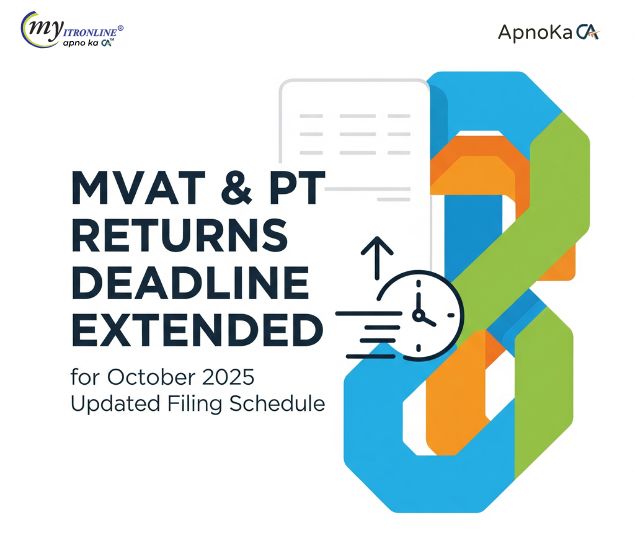
MVAT & PT Returns Deadline Extended for October 2025 Updated Filing Schedule
The Maharashtra government has extended the deadlines for filing MVAT and Professional Tax returns for October 2025. Payment due dates remain unchanged, and interest applies if taxes are paid late. Taxpayers now have additional time to file returns correctly and avoid late fees. This update helps businesses manage compliance efficiently and avoid penalties by following the revised dates.
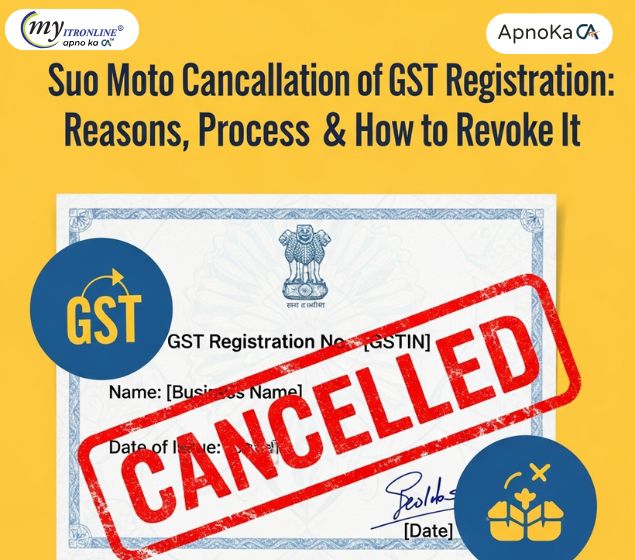
Suo Moto Cancellation of GST Registration: Reasons, Process & How to Revoke It
This blog explains what Suo Moto cancellation of GST registration means, why it happens, and how businesses can respond and apply for revocation. It includes the reasons, forms, timelines, and tips to stay compliant.
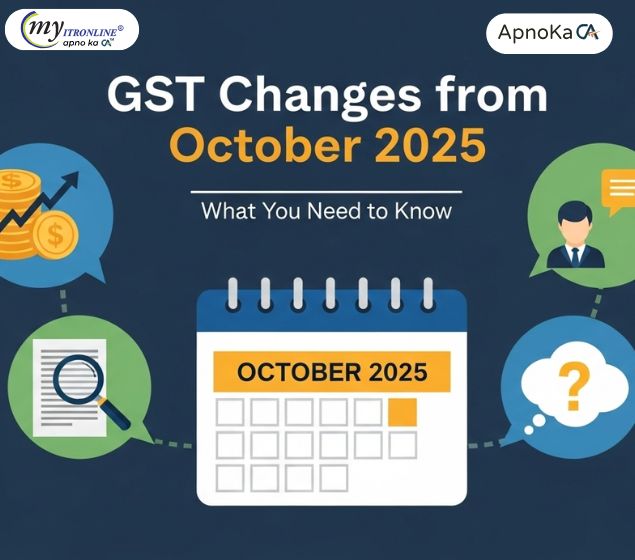
GST Changes from October 2025: What You Need to Know
Starting October 2025, the GST system will undergo major changes affecting how businesses file returns and claim input tax credit. Key updates include manual ITC acceptance, locked GSTR-3B liabilities, new credit note rules, and invoice-level TDS reporting. Businesses must adapt to stay compliant and avoid filing issues.

Breaking: Presumptive Taxation Moves to Section 58 - Complete Guide
The Income Tax Act 2025 introduces Section 58, replacing Section 44AD for presumptive taxation of small businesses. This provision applies to eligible assessees with turnover up to ₹2-3 crore, offering simplified tax computation at 6% for digital transactions and 8% for other receipts, or actual profit—whichever is higher. The change promotes digital payments and reduces compliance burden for small businesses while maintaining revenue collection efficiency.
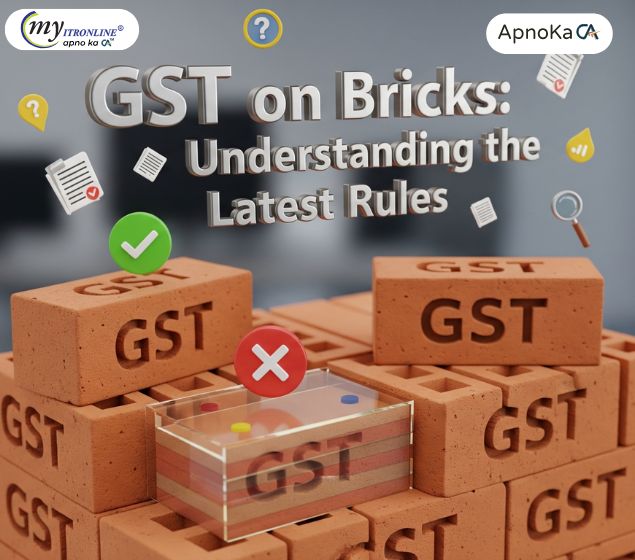
GST on Bricks: Understanding the Latest Rules
This blog post clarifies the latest GST rules for bricks in India, effective September 22, 2025. It details the two tax options for most brick types (6% without ITC under composition scheme or 12% with ITC under regular scheme) and introduces a special 5% GST rate with ITC for sand-lime bricks, which cannot opt for the composition scheme. The article also highlights the crucial annual turnover threshold of ₹20 lakh for GST registration. It explains the importance of these changes, who is affected, the pros and cons, and provides actionable advice for businesses, including checking turnover, correct brick classification, scheme selection, pricing adjustments, and record-keeping. Finally, it discusses the implications for buyers and builders and outlines potential issues such as classification disputes and transitional challenges.
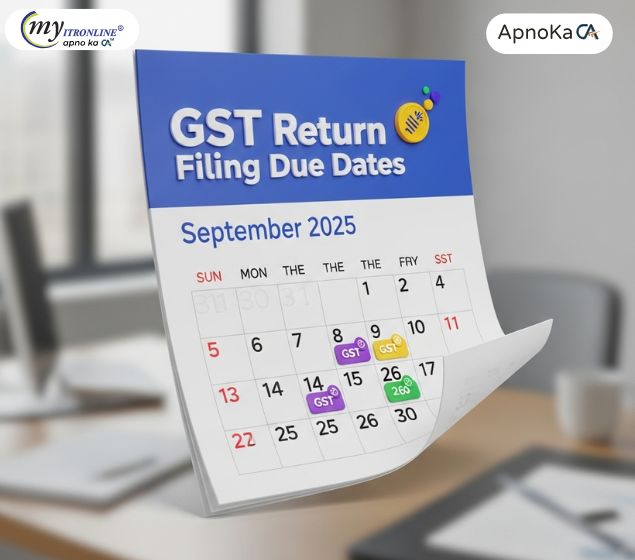
GST Return Filing Due Dates in September 2025
This quick-reference guide lays out all key GST return due dates for September 2025 — including deadlines for GSTR-7, GSTR-8, GSTR-1, IFF (QRMP), GSTR-6, GSTR-5, GSTR-3B and GSTR-5A — plus practical notes on why on-time filing matters and a simple table you can use as a checklist.
.jpg)
Income Tax Depreciation Rates for FY 2025-26 (AY 2026-27): The Complete Guide
A comprehensive guide for businesses on the depreciation rates and rules applicable for the Financial Year 2025-26 under the Indian Income Tax Act. The blog details the core principles, including the 'Block of Assets' concept and the WDV method. It provides a clear breakdown of depreciation rates for various asset classes like buildings, machinery, and intangible assets. Furthermore, it covers crucial special provisions such as additional depreciation for manufacturing units, rules for the sale of assets, and recent updates like the non-depreciable status of goodwill, empowering businesses with the knowledge for effective tax planning and compliance.
.jpg)
Tax Audit under 44AB: Revised 2025 Essentials
This guide explains the updated Guidance Note on Tax Audit under Section 44AB of the Income-tax Act, 1961, for the Assessment Year 2025-26 (Financial Year 2024-25). It clarifies who needs a tax audit, points out key changes in Form 3CD, including new clauses for digital transactions, MSME reporting, and buybacks. It also outlines the audit process, lists important due dates, and details the penalties for non-compliance. The guide offers best practices for taxpayers to help ensure smooth audits and strong tax compliance in India.
.jpg)
Small Business & Professional Taxes: A Guide to Sections 44AA, 44AB, 44AD, 44ADA for FY 2024-25
For small businesses and professionals in India, understanding Sections 44AA, 44AB, 44AD, and 44ADA of the Income Tax Act, 1961, is essential for smooth tax compliance. This guide explains how these sections apply for the Financial Year 2024-25 (Assessment Year 2025-26). It covers necessary bookkeeping, tax audit rules, and the simplified presumptive taxation schemes that can greatly lessen the compliance burden for qualified taxpayers.
.jpg)
The Latest on Partner Remuneration: FY 2025-26 Tax Changes Explained
The FY 2025-26 brings crucial changes for partnership firms & LLPs regarding partner remuneration. This blog decodes the new, increased deduction limits under Section 40(b) and the mandatory TDS introduction via Section 194T on payments to partners. It covers who's a working partner, the role of the partnership deed, and essential compliance steps for firms.
.jpg)
New Tax Audit Limits: Your Guide to AY 2025-26 Changes
This blog details the updated Tax Audit rules for AY 2025-26 (FY 2024-25), highlighting changes in turnover limits for businesses opting for presumptive taxation under Section 44AD and other key triggers for mandatory audits.
.jpg)
Big News for Business Owners and Professionals: ITR-3 Utility Gets a Makeover for AY 2025-26!
This blog post gives a clear and straightforward explanation of the major updates to the ITR-3 income tax utility for Assessment Year 2025-26. It emphasizes the new business and profession codes that improve the classification of different income sources, such as online trading and digital content creation. The post also discusses other important changes, including higher thresholds for reporting assets, updated capital gains reporting rules, detailed requirements for deductions, and clarifications on the new tax system. This information is directed at business owners, professionals, and HUFs, offering useful guidance on understanding and managing these changes to make tax filing easier.
